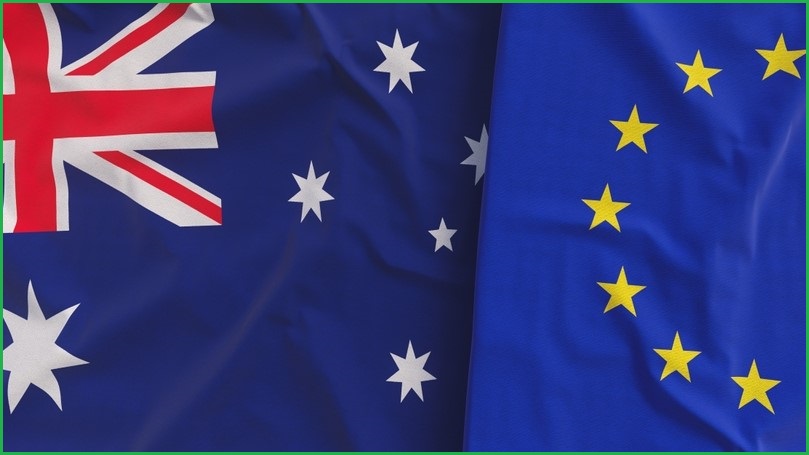Australian researchers have voiced disappointment at the federal government for passing up an opportunity to associate with Horizon Europe – a $150.7 billion international research fund.
Horizon Europe draws in both EU and non-EU countries to help achieve the UN’s Sustainable Development Goals, boost the EU’s competitiveness and growth, and “address shared global challenges” in climate, energy, digital economy and health.
With a budget of $150.7 billion (€93.5 billion), the initiative allows researchers from associating non-EU countries to win funding from it and lead collaborative projects in exchange for a budget contribution.
Marking the first program to allow association from industrialised countries outside of the EU geographical region, many global researchers have lauded Horizon Europe as a chance to secure funding, boost domestic research and development capabilities, and collaborate with global partners in the sciences.
Meanwhile, Australia has reportedly told the EU it is not interested in joining Horizon Europe – offering little-to-no explanation for the decision as industry figureheads voice widespread confusion and disappointment.
Research Professional News reports that in mid-2023, Australian government officials wrote to the European Commission to declare Australia would not continue association talks which had been underway since 2021, though the decision was not made public at the time.
A spokesperson for Industry and Science Minister Ed Husic has since told Information Age “Australia already has a strong existing relationship with Horizon Europe”, and the government has “no plans” to reconsider associating.
Matthew Brown, deputy chief executive of Australian peak body the Group of Eight Universities (Go8), said the country’s treatment of Horizon Europe is “a serious missed opportunity by successive governments to the detriment of our national research effort”.
“The European Union is Australia's most significant economic partner and our single largest research partner,” Brown told Information Age.
“If we don’t participate in the world's largest research fund – Horizon Europe – we are missing an important opportunity to boost our nation's innovation system and diversify its research base, as well as strengthen the Australian-European partnership – at a time when we are being urged to boost research with key geostrategic partners.”
Global allies jump at the chance
Nineteen countries are associated with the Horizon Europe program, including the UK, Ukraine, Norway, and New Zealand, which started talks around the same time as Australia and has already started to receive funding.
Canada also signed an agreement to join last week, with the country’s Science Minister François-Philippe Champagne describing the program as a “milestone for prosperity in the 21st century”.
Brown told Information Age the benefits of the program go “well beyond funding”, pointing out an avenue to partner up with world leaders on “major global challenges” and gain access to business and industry opportunities.
He also warned Canada’s decision to join the growing number of non-EU countries associating with Horizon Europe “should send a strong signal to the Australian government”.
“We will be left behind if we don’t join the world’s most significant research and innovation funding program,” said Brown.
“As a leading science and research nation we cannot afford to miss this opportunity to increase our research partnerships with value-aligned, like-minded nations.”
Executive director of Australian Technology Network of Universities, Ant Bagshaw, said rejecting the possibility of Horizon Europe was “short-sighted”.
President of the Australian Academy of Science, Chennupati Jagadish, said it would be a “missed opportunity” for Australia not to join.
Science and Technology Australia (STA), a group representing 225,000 scientists, engineers and technologists, similarly criticised the government for “missing an open goal that would powerfully boost our country’s R&D”.
STA chief executive Ryan Winn further noted Australia “needs to lift its game” when it comes to “economy-boosting” research and development, and should “look for strategic opportunities to invest that have the potential for big returns”.
“Europe is a trusted partner, with our first treaty-level science and technology agreement signed 30 years ago, in 1994,” said Winn.
“Australia associating with Horizon Europe wouldn’t just give the country’s researchers access to a massive project funding budget, but would also open doors to greater international collaboration and the opportunities that will flow from that.”
The government has not given its reason for reportedly going against industry expertise and ending talks on the program, but it is believed to have been motivated by the potential cost of contributions to funded projects.
“I understand budget pressures, but I encourage the Australian government to have a constructive conversation with the Australian research sector and the EU on what is reasonable and practical in the current climate to enable Australia to be part of the scheme,” said Winn.
Formal negotiations to associate to Horizon Europe were recently concluded with the Republic of Korea, while negotiations are ongoing with Switzerland and preparatory talks are taking place with Japan and Singapore.
Earlier this month, parliament saw the introduction of the Future Made in Australia bill, which includes a domestic fund for emerging technologies which assist with Australia’s transition to being a net-zero economy.










